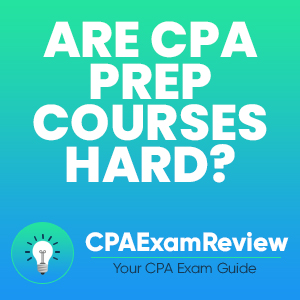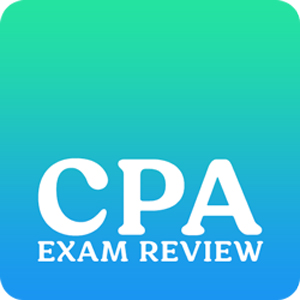 Yes, CPA prep courses can be difficult for CPA candidates because they are designed to challenge your knowledge of topics covered on the CPA exam.
Yes, CPA prep courses can be difficult for CPA candidates because they are designed to challenge your knowledge of topics covered on the CPA exam.
Known for its rigorous nature, the CPA exam necessitates thorough preparation, often through specialized prep courses. These courses, while essential, are often perceived as daunting.
This article aims to delve into the true nature of CPA prep courses and whether they are as hard as they seem.
What are CPA Prep Courses?
Contents
- What are CPA Prep Courses?
- Why are CPA Prep Courses so Hard?
- Comparing CPA Prep Courses to the CPA Exam Itself
- Strategies to Manage and Overcome Challenges in CPA Prep Courses
- Benefits of the Rigorous Nature of CPA Prep Courses
- Testimonials and Success Stories
- Bottom Line
- Frequently Asked Questions
- How challenging are CPA prep courses for someone with a basic understanding of accounting principles?
- What are the most difficult aspects of CPA prep courses that candidates should be aware of?
- Can my previous education or work experience in accounting reduce the difficulty of a CPA prep course?
- Are there effective strategies to make CPA prep courses less overwhelming?
CPA prep courses are comprehensive programs designed to prepare candidates for the CPA exam. They typically include a range of study materials, such as textbooks, lecture videos, practice questions, and simulated exams.
The courses might be offered in various formats, including online classes, in-person sessions, or self-study options. The primary goal of these courses is to cover all the exam sections (AUD, BEC, FAR, and REG) extensively, ensuring that candidates are well-prepared.
Why are CPA Prep Courses so Hard?
CPA Prep courses have to be challenging in order to prepare you for the actual CPA Exam. They cover so much study material, there’s no way to memorize or know it all. Chances are you will be challenged by some or all of it.
There are a number of different things that influence how hard a CPA prep course is. Let’s look at some of them.
Factors Influencing the Perceived Difficulty of CPA Prep Courses
The perceived difficulty of CPA prep courses can vary significantly among candidates, influenced by several factors:
Educational Background: Candidates with a strong foundation in accounting principles may find the courses less challenging than those new to the field.
Study Time: The amount of time candidates can dedicate to studying significantly impacts how challenging the material feels. Balancing study with other commitments like work can add to the perceived difficulty.
Course Complexity: Some courses are more in-depth than others, delving deeper into complex topics, which can affect their difficulty level.
Learning Styles: Individual learning preferences and styles also play a crucial role. What might be challenging for one candidate could be straightforward for another.
Comparing CPA Prep Courses to the CPA Exam Itself
Interestingly, the difficulty of CPA prep courses is often aligned with that of the CPA exam itself. These courses are intentionally rigorous to prepare candidates for the challenges of the actual exam.
The comprehensive nature of prep courses is designed to not only cover all exam topics but also to train candidates in exam-taking strategies and time management.
Strategies to Manage and Overcome Challenges in CPA Prep Courses
While CPA prep courses can be challenging, there are strategies to manage and overcome these difficulties effectively:
Develop a Study Schedule: Creating a consistent and realistic study plan is crucial. Allocating specific times for studying each day can help in managing the course load effectively.
Use Additional Resources: Taking advantage of resources like tutoring, study groups, or online forums can provide additional support and clarification of complex topics.
Practice Time Management: Learning to manage time effectively, especially during practice exams, can reduce the stress associated with a heavy course load.
Stress-Reduction Techniques: Incorporating stress-reduction techniques, such as regular breaks, exercise, or meditation, can improve focus and overall study efficiency.
Benefits of the Rigorous Nature of CPA Prep Courses
The rigorous nature of CPA prep courses, while challenging, brings several benefits:
Realistic Exam Preparation: These courses give candidates a taste of what to expect in the actual exam, both in terms of difficulty and the breadth of content.
Thorough Understanding: The in-depth coverage of topics ensures that candidates have a thorough understanding of the subject matter, which is crucial for their long-term accounting career.
Testimonials and Success Stories
Many candidates who initially found CPA prep courses challenging have later acknowledged their effectiveness.
Success stories often feature candidates who, despite the initial struggle, managed to pass the CPA exam on their first attempt.
These testimonials highlight the importance of perseverance and the right study strategies in overcoming the courses’ challenges.
Bottom Line
CPA prep courses are undeniably rigorous, but their difficulty level is relative and depends on various personal and situational factors. While these courses present a formidable challenge, they are carefully structured to prepare candidates adequately for the CPA exam.
With the right approach, including a consistent study plan, use of additional resources, and effective time management, the challenges of CPA prep courses can be successfully managed.
Ultimately, these courses are a crucial step in a candidate’s journey to CPA certification, providing not just exam preparation but a strong foundation for a career in accounting.
Frequently Asked Questions
How challenging are CPA prep courses for someone with a basic understanding of accounting principles?
For individuals with a basic understanding of accounting principles, CPA prep courses can be moderately challenging. These courses are designed to cover a wide range of topics in depth, which can be demanding even for those with some background in accounting.
However, this foundational knowledge will certainly be beneficial and can make the learning curve less steep compared to someone with no accounting background.
What are the most difficult aspects of CPA prep courses that candidates should be aware of?
The most difficult aspects of CPA prep courses often include the vast amount of material that needs to be covered, the complexity of certain accounting and auditing concepts, and the intense preparation required for the simulation sections of the exam.
Additionally, managing time effectively to balance study with other commitments can be a significant challenge for many candidates.
Can my previous education or work experience in accounting reduce the difficulty of a CPA prep course?
Yes, previous education or work experience in accounting can reduce the perceived difficulty of a CPA prep course. Familiarity with accounting concepts and practical experience can provide a solid foundation, making it easier to grasp the more complex topics covered in the course.
However, the CPA exam covers a wide range of topics, so comprehensive preparation is still crucial.
Are there effective strategies to make CPA prep courses less overwhelming?
Effective strategies to make CPA prep courses less overwhelming include developing a structured study plan, breaking down study material into manageable parts, and utilizing various study aids like flashcards, mnemonic devices, and practice exams.
Additionally, joining study groups or seeking help from a tutor can provide additional support and clarification of difficult concepts. Regular breaks and stress management techniques are also important to maintain focus and prevent burnout.

